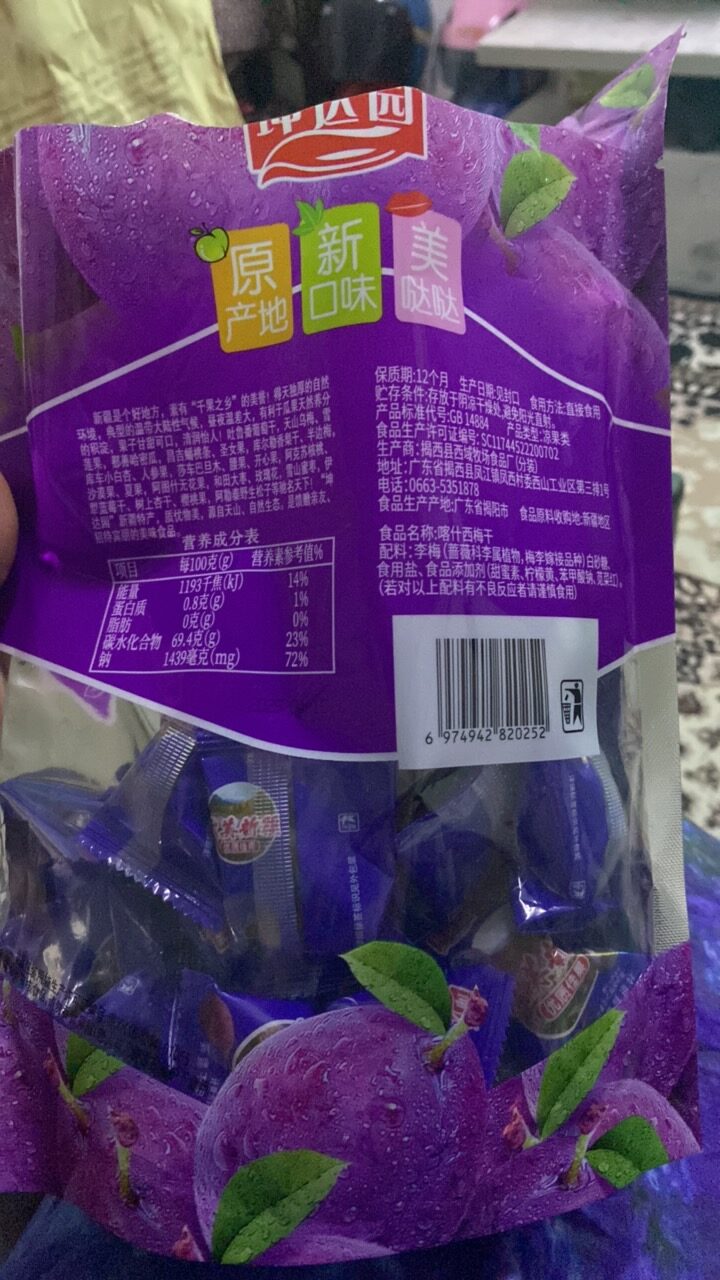
Barcode: 6974942820252
喀什西梅干
DOUBTFUL
📝 Reason: The product contains ingredients with doubtful Halal status, such as unspecified sweeteners and colors, leading to an overall Doubtful classification. Islamic dietary laws require clear verification of all ingredients to ensure compliance. Quran 5:3 outlines prohibited substances, emphasizing the importance of Halal certification for doubtful items.
🏷️ Category: Dried Fruit
📄 Certificates: Vegetarisch, Vegan
Ingredients:
Details
Understanding the Halal Status of 喀什西梅干
As consumers become more conscientious about their dietary choices, the quest for Halal-certified products is paramount. The product in question, 喀什西梅干, has a current Halal status classified as DOUBTFUL. This classification raises questions about its ingredients, sourcing, and adherence to Islamic dietary laws.
The Importance of Halal Certification
Halal certification plays a crucial role in ensuring that food products meet the dietary requirements set forth by Islamic law. According to Quran 5:3, certain substances are explicitly prohibited, underlining the importance of complete transparency in ingredient sourcing.
Ingredient Breakdown of 喀什西梅干
The ingredients of 喀什西梅干 include:
- li mei (prunus salicina): Generally considered Halal and primarily derived from fruit.
- white sugar: While generally considered Halal, the status depends on how it is processed. If white sugar is derived from non-Halal substances, it could pose a problem.
- salt: This mineral is universally accepted as Halal.
- sweeteners: The type of sweeteners used in this product is unspecified. They could either be Halal or Haram depending on their sourcing, which raises concerns regarding their certification.
- lemon yellow (E102): This artificial coloring’s status is ambiguous. While E102 is not officially listed among Haram E-numbers, its verification is necessary to discern its Halal compliance.
- sodium benzoate (E211): This widely-used preservative is generally accepted as Halal unless sourced from Haram materials.
- scare red: Similar to sweeteners, without clear specifications, this component’s Halal status can vary based on its source.
Understanding E-Numbers and Their Halal Status
For many consumers, E-numbers can be a source of confusion. From artificial colors to preservatives, each E-number has specific origins that determine its Halal status:
- E102 (Lemon Yellow): Its classification requires verification. It is an artificial color and may affect the overall Halal status of the product if derived from non-Halal substances.
- E211 (Sodium Benzoate): A preservative that is usually deemed Halal. However, awareness regarding the sourcing materials is essential.
Conclusion: Making Informed Choices
In choosing 喀什西梅干, consumers are encouraged to weigh the doubts surrounding its Halal status. While some ingredients such as li mei (prunus salicina), white sugar, and salt are generally accepted as Halal, the doubts surrounding sweeteners and coloring agents compel us to proceed with caution.
It’s advisable for consumers seeking Halal products to look for clear certification from reputable authorities. For those adhering strictly to Islamic dietary laws, understanding these nuances is key to making informed choices.
Additionally, while the product boasts certifications for being ‘Vegetarisch’ and ‘Vegan,’ these do not equate to Halal assurance. Therefore, always verify and consult further if Halal designation is a priority in your lifestyle.

